
The professor of geriatrics and gerontology at the University of Wisconsin shared insights on prescribing the autoinjector formulation of lecanemab for patients living with Alzheimer disease. [WATCH TIME: 5 minutes]

The professor of geriatrics and gerontology at the University of Wisconsin shared insights on prescribing the autoinjector formulation of lecanemab for patients living with Alzheimer disease. [WATCH TIME: 5 minutes]

The senior director at the Banner Alzheimer's Institute talked about findings from the ancillary analyses of the US POINTER Study and the importance of strong recruitment efforts. [WATCH TIME: 5 minutes]

The head of search and evaluation at the Alzheimer's Drug Discovery Foundation discussed the evolving role of biomarkers for diagnosis and the progress of targeted therapies in Alzheimer disease. [WATCH TIME: 5 minutes]

The chief operating officer at Linus Health talked about how brief, digitally administered cognitive assessments enable scalable, earlier identification of cognitive impairment. [WATCH TIME: 4 minutes]

The director at the National Center of Neurology and Psychiatry discussed how biomarker-driven diagnostics and antibody therapies targeting amyloid pathology may be reshaping Alzheimer disease management. [WATCH TIME: 4 minutes]

At CTAD 2025, the director of Banner Alzheimer’s Institute discussed emerging epidemiologic and translational evidence suggesting that certain vaccines may confer protection against dementia. [WATCH TIME: 6 minutes]
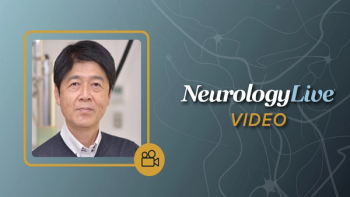
The associate professor at The University of Tokyo talked about how lifestyle-focused multidomain interventions, including exercise, sleep, and nutrition, may improve cognitive function. [WATCH TIME: 4 minutes]

The senior director of the Fluid Biomarker Program at Banner Health highlighted the evolving role of blood and fluid biomarkers in Alzheimer disease research and clinical practice.

A neurologist at St Vincent's Hospital shared recently presented findings from a phase 2 study of tazbentetol, a novel synaptogenic small molecule, in mild-to-moderate Alzheimer disease. [WATCH TIME: 4 minutes]

The assistant professor at the University of Southern California discussed how intentional, community-centered recruitment strategies can improve diversity, trust, and retention in neurodegenerative studies. [WATCH TIME: 6 minutes]

The director of the Banner Sun Health Research Institute discussed a variety of meaningful Alzheimer disease research presented at the 2024 Clinical Trials on Alzheimer's Disease Conference (CTAD).
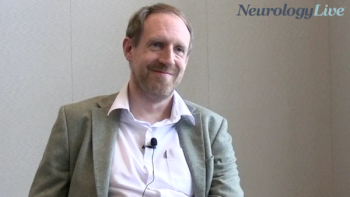
The professor of translational dementia research at Newcastle University talked about late-breaking data presented at CTAD 2025 on neflamapimod in the phase 2b RewinD-LB trial. [WATCH TIME: 5 minutes]

Merck's MK-2214 shows promise in early Alzheimer’s trials, earning FDA fast-track status for its safety and potential efficacy in slowing disease progression.
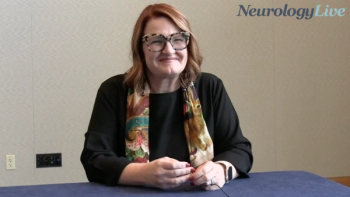
The vice president of U.S. medical affairs and global at Eli Lilly and Company discussed how a subgroup of patients treated with donanemab maintained cognitive benefit for 2 years. [WATCH TIME: 5 minutes]

The POLARIS-AD phase 3 large-scale global trial is now underway, testing the safety and efficacy of AR1001 in over 1500 patients with mild cognitive impairment or early Alzheimer disease.

The executive director of the Institute for Translational Research at UNT Health discussed how to increase representation of underrepresented groups in Alzheimer disease clinical trials. [WATCH TIME: 5 minutes]

A groundbreaking phase 1 trial reveals promising results for a new stem cell therapy targeting Alzheimer disease, advancing to phase 2 studies.

In a study presented at CTAD 2025, patients treated with lecanemab showed a 59% increase in cerebrospinal fluid protofibril concentration at 12 months and a 45% increase at 18 months.

Semaglutide shows no significant impact on Alzheimer disease progression in large trials, despite some biomarker improvements and consistent safety profiles.
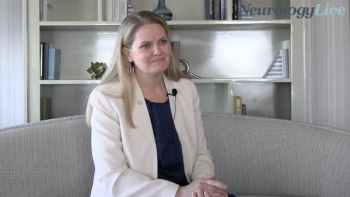
At CTAD 2025, the senior vice president of medical and scientific relations at the Alzheimer's Association talked about how structured lifestyle interventions improved blood pressure and sleep in the U.S. POINTER study. [WATCH TIME: 4 minutes]

New data highlights neflamapimod's potential in reducing biomarkers and improving clinical outcomes for dementia with Lewy bodies, paving the way for Phase 3 trials.

At CTAD 2025, the chief scientific officer at the Banner Alzheimer’s Institute discussed emerging antiamyloid therapies, clinical trial insights, and treatment duration in Alzheimer disease.

A recent study reveals that Araclon's ABvac40 vaccine may slow cortical perfusion decline in patients with Alzheimer disease, suggesting potential cognitive benefits.

Treatment with etalanetug reduced cerebrospinal fluid eMTBR-tau243 by 62% and plasma eMTBR-tau243 by 78% at 3 months in patients with dominantly inherited Alzheimer disease.

The adaptive PRImus-AD phase 2a trial will evaluate the safety and efficacy of PRI-002, a novel investigational agent, in patients with mild cognitive impairment or mild Alzheimer disease.

A new phase 3 clinical trial is underway to evaluate masupirdine, a selective 5-HT6 receptor antagonist, as a potential treatment for agitation in patients with Alzheimer’s disease.

In an analysis of the phase 2a CLEAR MIND study presented at CTAD 2025, laromestrocel treatment was associated with reduced hippocampal neuroinflammation in patients with mild Alzheimer disease.

A phase 2 study at CTAD 2025 explores VHB937's potential in treating early Alzheimer disease, focusing on safety and efficacy in patients.

New findings reveal the feasibility of self-administering remternetug, a monoclonal antibody for Alzheimer, enhancing treatment options for early-stage patients.
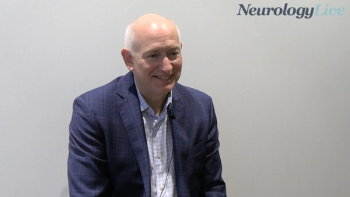
The chair of psychiatry at Tufts University School of Medicine discussed ongoing research exploring the potential of cannabinoids in treating agitation in Alzheimer disease. [WATCH TIME: 5 minutes]